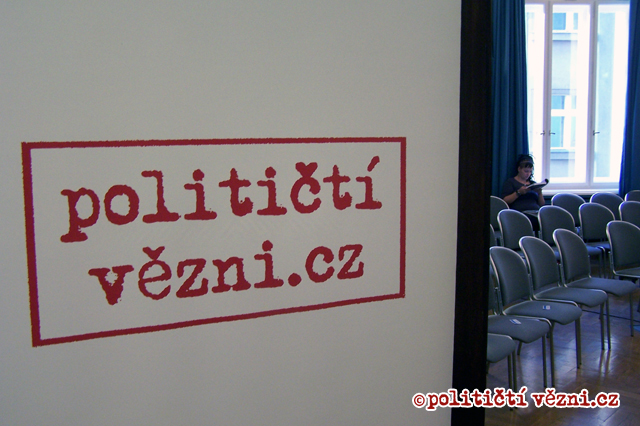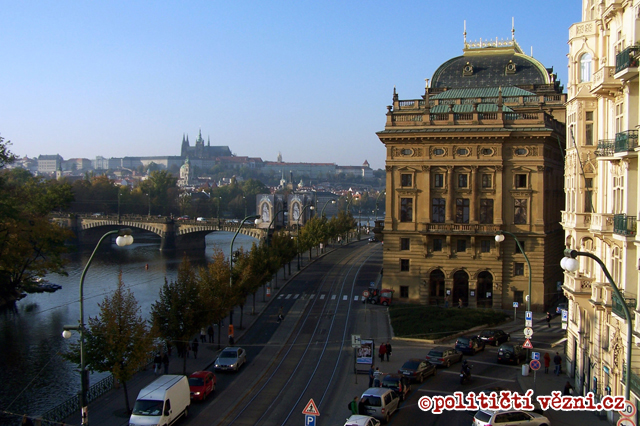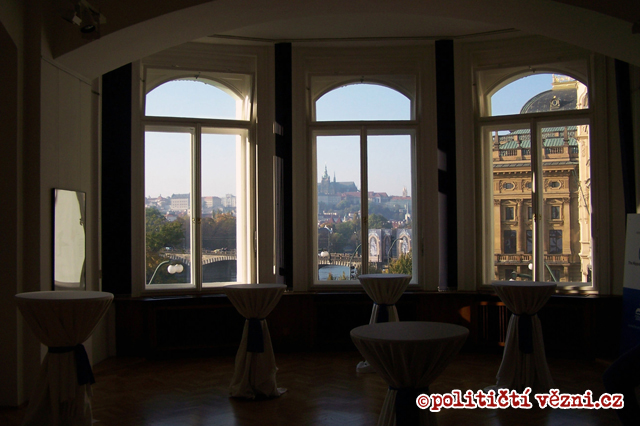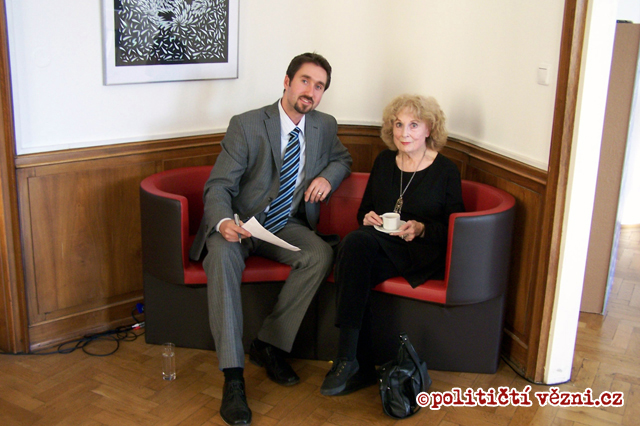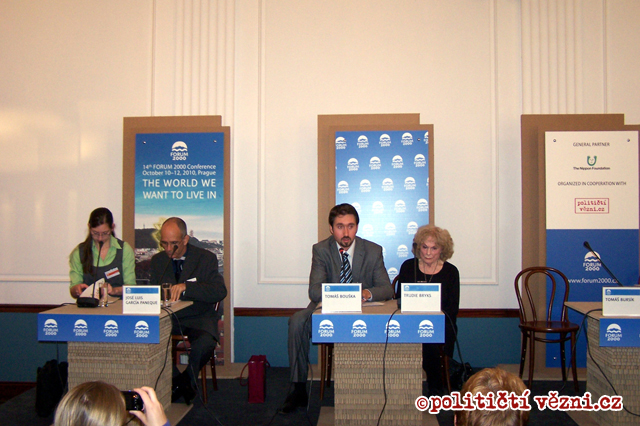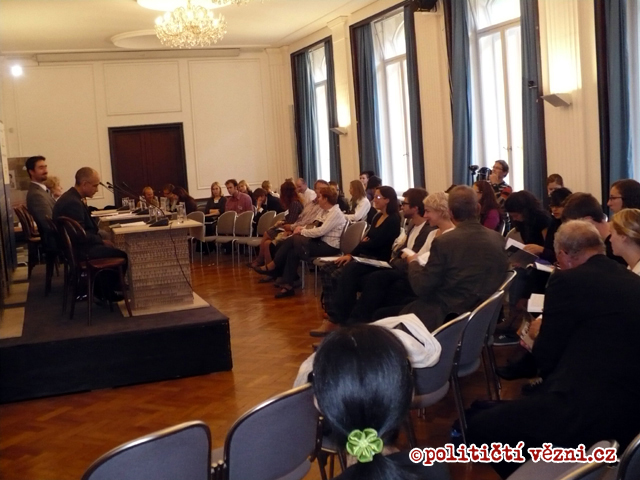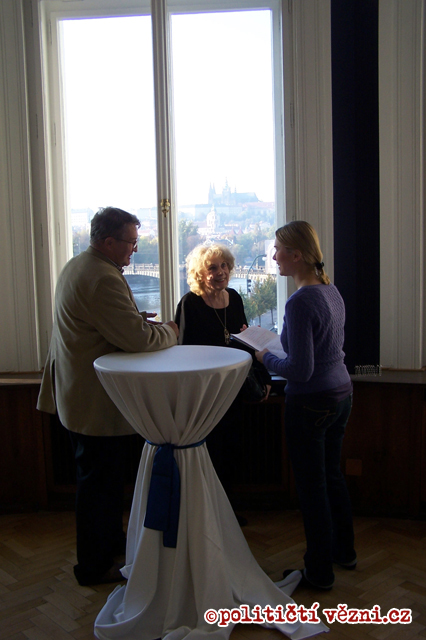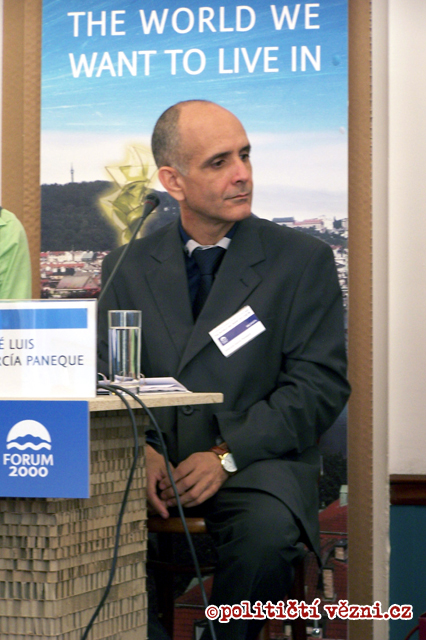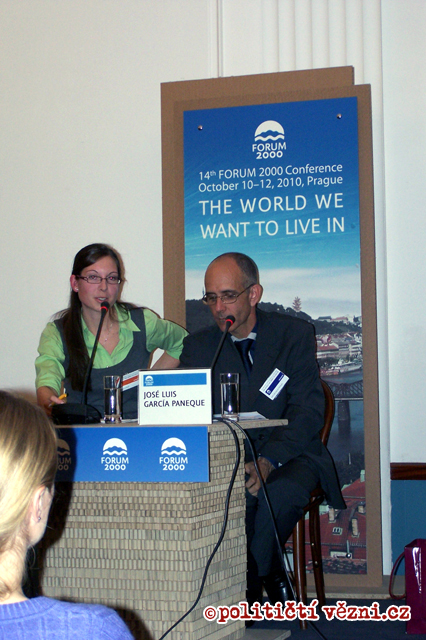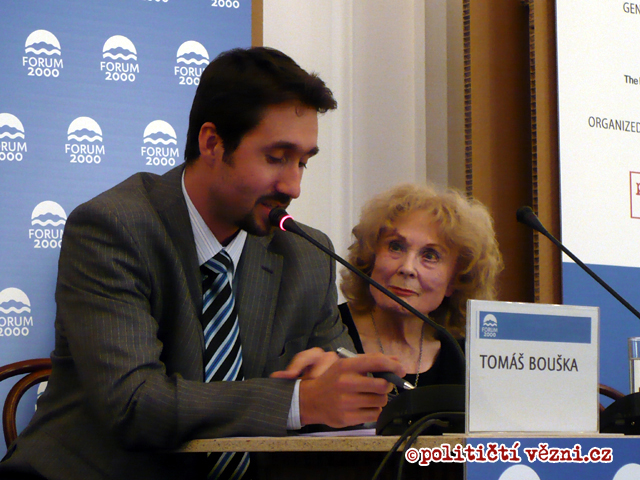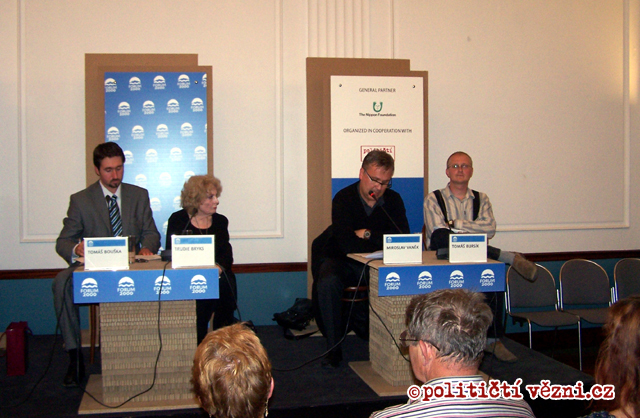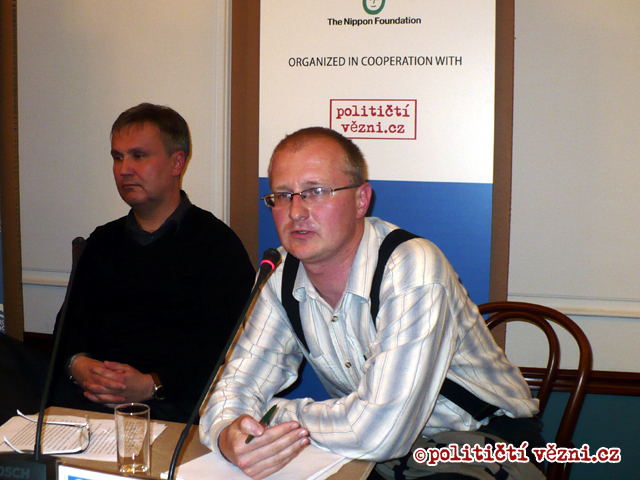The 14th Annual International Conference Forum 2000 Foundation
This is a short review of our discussion panel Lessons taken (?) Role of Political Prisoners in our Past, Presence and Future. The panel took place as part of the 14th annual international conference Nadace Forum 2000 (Forum 2000 Foundation). This conference is held annually in Prague under the auspices of President Vaclav Havel.
Our first speaker was Trudie Bryksová, a widow of brigadier general Josef Bryks. He fought in WWII as a fighter pilot in the Battle of Britain. Later he fell hostage to the Germans and fled German hostage camps several times. After the end of WWII he married an English woman, Trudie Rose. Together they moved to Olomouc, Czech Republic. Trudie Bryksová told us: "I came to Czechoslovakia in November 1945. I was sure our future was safe and I was pregnant. The life in CSR was somewhat different to the life in Britain, yet we were coping well." Following February 1948. Josef Bryks was provoked by the State Secret Police to start preparation for emigration. He was detained and sentenced to 10 years in prison. Soon after the trial the sentence was doubled. He was held in prisons and uranium mines until his death in 1957 despite his deteriorating health. He died in Jáchymov camp Rovnost at the age of 41. The cause of death: heart failure. Apparently, it happened after he was told by the representatives of the socialist regime that he would not be allowed to send part of his income to his wife and daughter struggling to make ends meet in exile.
Trudie Bryksová had not been informed about the death of her husband for a long time. When she found out about the death of her husband, the Czechoslovak embassy refused to confirm the information. Not until she told her story in the media did she receive confirmation from the embassy. She visited Czechoslovakia first after 1989 where she also met relatives of Josef Bryks which she did not know about. Her return to Czechoslovakia thus allowed her to renew lost family ties.
Josef Bryks was rehabilitated first in 2007. His remains were found in 2009 thank to historians Antonín Kýr and Alena Kafková.
Our second guest was José Luís Garcìa Paneque. He is a Cuban medical doctor, journalist and dissident. He took part in the Varela project - a petition demanding introduction of democratic reforms in Cuba. Dr. Paneque was detained in 2003 at the time of heightened repression of Cuban dissent. He was sentenced to 24 years in prison for destabilizing Cuban regime in favour of the USA. "I am sad that many of my friends are still in prison." According to Dr. Paneque the Czech Republic can use its experience with moving from socialistic dictatorship to democracy, something Cuba will have to learn in the future. At this point the experience of Trudie Bryksová and Czechoslovakia became very relevant in the light of the current experience of Dr. Paneque who is currently undergoing the experience of political oppression and the country is yet to conquer the totalitarian regime.
Our third guest was a historian Prof. Miroslav Vaněk, currently chairing the International Oral History Association. Vaněk made us remember the beginnings of oral history and its possible use in the historical analysis of totalitarian regimes. However, he also stated the importance of relying on other historical methods in conjunction with oral history. Further, he mentioned research of totalitarian oppression already conducted in the Czech Republic under the auspices of the Czech Academy of Science - Oral History Centre and several student projects and initiatives. Here it is important, according to Vaněk, to distinguish those projects that comply with international methodological standards from those that do not.
The last guest of our debate was a historian Tomáš Bursík, an expert in the field of political imprisonment and a director of modern history section of the History Museum in Prague. "My first concern related to political imprisonment in Czechoslovakia is our tendency to build walls between political prisoners of the 1970s and 1980s and those from the 1950s", said Mr. Bursík. He further added: "I think the life of a political prisoner is about love and hope. It does not matter whether we talk about the 1950s, 1930s, 1980s or even 2010. It is probably the insufficient job of us historian that we are not able to clarify blurred terms such as political prisoner, heroism, cowardice, and perpetual exaltation of certain traits at the expense of others." Later he also noted that: "Political prisoners of the 1950s and 1960s had hope that the communist government might collapse before "plums ripe" or Americans will come here and liberate us. Did political prisoners of the 1970s and 1980s have the same hope given their 20 years experience of the life in Communism? Yet, they decided to defend their life, their thoughts and spread them further." According to Tomáš Bursík, much information can be obtained from a comparison of Czech and Polish opposition groups. In the Czech Republic, individual opposing groups oppose each other. Their disputes influence the proposal of the law on the third resistance movement, e.g., which then re-builds walls between political prisoners of different times.
Last but not least, the team of political prisoners.cz would like to thank to all the guests, partners and members of the organizational team of Nadace Forum 2000.
(by: Michal Louč, translation: Kristýna Bušková)

